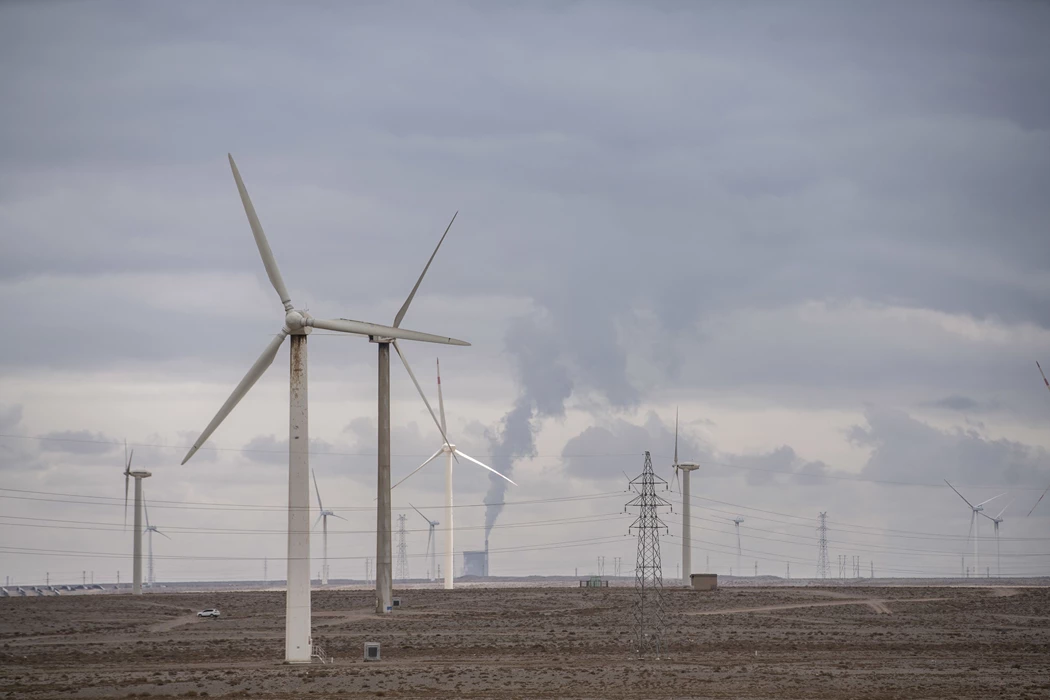Surprise U.S.-China Climate Deal Breaks Through Superpower Standoff
(Bloomberg) --
China and the U.S. vowed to work together to slow global warming, issuing a surprise joint statement Wednesday that injects new momentum into the last days of global climate negotiations. The deal also marks a rare moment of cooperation between superpowers locked in geopolitical rivalry and who seemed at odds for most of the two-week talks in Glasgow, Scotland.
The two sides agreed to boost their efforts to cut emissions, including by tackling methane and illegal deforestation, China’s special climate envoy Xie Zhenhua told reporters. They will establish a working group to increase action in the 2020s — a key decade — which will meet in the first half of next year. His U.S. counterpart John Kerry said that the group will focus on “concrete” measures.
As the world’s two major economies, “we need to work actively to address climate change,” Xie said. Kerry said that "the U.S. and China have no shortage of differences, but on climate cooperation is the only way to get this job done." The two spoke at separate press conferences, one after the other, with Xie going first.
The announcement changed the mood in Glasgow, where negotiators are in the midst of fraught discussions over how to accelerate measures to curb the rise in global temperatures. It was a bilateral agreement between the U.S. and China that paved the way for the landmark Paris Agreement in 2015.

"The big significance of this is geopolitical,” said Nick Mabey, co-founder of think tank E3G. “The U.S. and China have signaled they will end the wars of words that marred the past days.”
Relations between the world’s two biggest economies have steadily improved since Chinese officials told Kerry in September that progress on climate depended on improved overall ties, prompting President Joe Biden to call counterpart Xi Jinping in search of a breakthrough. Shortly afterward, the U.S. reached a deal to release Huawei Chief Financial Officer Meng Wanzhou from extradition proceedings in Canada -- one of Beijing’s top demands.
The joint agreement on climate comes ahead of another virtual summit likely to be held next week between Biden and Xi, who skipped an in-person appearance at COP26. Xi wrote in a letter this week to the National Committee on U.S.-China Relations that China is ready to deepen ties with the U.S. and better manage their disputes.
That meeting is likely to address tensions over everything from tech to trade, human rights and the status of Taiwan. Both leaders have an incentive to put the relationship on a more even footing as they each focus on challenges at home, and climate matters is a key area they can cooperate on.
The two countries reaffirmed the temperature goals of the Paris accord, which has a stretch target of limiting warming to 1.5 degrees Celsius, and recognized there is a gap between current policies and what needs to be done, Xie said. Both are committed to pushing for a successful COP26, including agreements on climate finance and rules to create a global carbon market, he said.
Still, China declined to join the global pledge being pushed by the U.S. and the European Union to cut methane emissions 30% by the end of the decade from 2020 levels. Xie said China will develop its own national plan. Kerry admitted that he had failed to get China to move its deadline for reaching peak emissions earlier from 2030. “We've peaked out on peaking,” he said.
As the world’s biggest emitter of greenhouse gases, China can do more than any other country right now to help the world avoid the worst effects of global warming. But it argues that its plan to reach carbon neutrality by 2060 will already be the most ambitious emissions reduction ever attempted.
“It can only be good news that the U.S. and China are working closely on climate change and slashing methane emissions,” said Bernice Lee, research director at Chatham House. “But the statement is not enough to close the deal. The real test of Washington and Beijing is how hard they push for a 1.5°C-aligned deal here in Glasgow.”
(Adds more context from sixth paragraph)
More stories like this are available on bloomberg.com
©2021 Bloomberg L.P.





